|
Dr Tom Cromarty Editor Interests: Paediatric Emergency Medicine, Medical Engagement and Leadership, Simulation, Quality Improvement, Research Twitter: @Tomcromarty |
Welsh Research and Education Network
WREN BlogHot topics in research and medical education, in Wales and beyond
Dr Celyn Kenny Editor Interests: Neonates, Neurodevelopment, Sepsis, Media and Broadcasting Twitter: @Celynkenny |
 With ARCP around the corner naturally the portfolio panic sets in. With the current pandemic, many face to face courses as well as the RCPCH conference have been cancelled. We have all witnessed a big drive in virtual meetings and also online focused learning. Zoom is now our new found best friend! We are fortunate in our Welsh Deanery with the development of an interactive and variable weekly teaching schedule with the introduction of AWEN (All Wales Wellness & Education Network) set up by trainees for the trainees. A big thanks to Andrea and her team for keeping us going with ample opportunities to learn and also reflect to ensure our curriculum needs are met for the ever nearing ARCP. https://docs.google.com/spreadsheets/d/e/2PACX-1vSAJDgw2xhvpCmkz5fipUqOh-ZhXTFKmXtBFldFiRXuv3utP4UGUPXOOFCnSdi2MK2Hs33iKg-DUJim/pubhtml On the RCPCH website there are lots of online e-learning opportunities to ensure we as trainees are up to date as well as keeping us engaged with training needs. Through Compass we have the access to many different online courses with a big variety of topics. From Safeguarding to Acute Paediatrics to Prescribing. There really is something for everyone. This also includes Foundation trainees who have an interest in Paediatrics; plenty of CV building ideas to keep you in the game and strengthen your future application. Imaging in cases of suspected physical abuse in children Celyn Kenny ST3 When it comes to managing children, who have experienced suspected physical abuse, ensuring correct imaging modes for that specific case is crucial in enabling effective investigation of complex cases. Recently, we have seen a change in the modalities of imaging used in a Safeguarding medical with the role of Skeletal Surveys now being the gold standard. This online course aims to provide an overview of the principles behind the guidance used in imaging when it comes to cases of suspected NAI. With the use of practical demonstrations and advice it informs us on how to obtain the best possible quality images within the necessary timeframes Aimed at Radiologists, Nuclear Medicine technologists, Radiographers and of course Paediatricians. Thus, raising the question of how good is our understanding, as budding Paediatricians, to the reasoning behind why we request these imaging modalities and can we improve and expand our knowledge and create a better working partnership with our Radiology colleagues. The RCPCH also encourages A&E staff, community-based health professionals, safeguarding lead professionals as well as all individuals involved in the imaging process to complete this e-learning. The course itself has five modules which are very easy to work through. Module number one is an introduction, giving us a flavour of the modules and highlighting the importance of the understanding and reasoning behind specific imaging modalities. The second module looks at the process of making the referral for imaging. Here we learn what are the requirements and information necessary to ensure the correct images are taken within the necessary timeframes. Producing the images is discussed in the third with a strong focus on ensuring necessary images are taken with minimal possible radiation exposure and of course patient distress. The fourth module focuses on the role of the Radiologists in reporting the images and stresses the importance of how findings should be documented. Follow up is the focus of the fifth and final module and how we can play an active role in ensuring this does not get missed. Was it useful? Completing the modules was informative with a nice flow and not time consuming. I have learnt the importance in the reasoning behind images and their importance in certain age groups. What I have found most useful is how important key parts of history is on requesting the appropriate investigation. This aids the reporting process for the radiologists and the ability to make a clearer picture in deciding is this injury caused by NAI or not. What was useful about this course was it had areas focused to the role of each member of the MDT within the process of investigating NAI and how important a collaboration is with your colleagues in complex cases. Would I recommend? I did find there was a lot of guidelines from the Royal College of Radiologists and the Society and College of Radiographers which were wordy and heavy on occasion and may be too in detail for what we need. However, on the whole it was very straight forward to work through and I have learnt and reflected on the importance of knowing which modality is needed when and why. This can only help in completing future child protection medical case reports and also boost my confidence when it comes to the dreaded discussion with Radiologists. To add to this there is a lovely certificate on completion that can be uploaded straight away to your portfolio! REVIEW: E-learning ‘Paediatric Prescribing Principles 2016’ https://www.rcpch.ac.uk/resources/paediatric-prescribing-principles-online-learning By Dr Gemma Ford – Foundation Trainee with interest in Paediatrics What is it? The Paediatric Prescribing Principles e-learning is a succinct, three-part e-learning resource that takes you through the fundamental aspects of prescribing safely for children and young people. Each module is said to take 20-30 minutes; however, you are free to work through it at your own pace. 1stPart - Drug Metabolism: This, for me, was the longest module of the course. It is split into five sections, each full of useful physiology, pharmacology and worked clinical examples. It is rich in science, and I shamelessly enjoyed being taken through the detailed pharmacology. It acted partly as revision, and partly as a great foundation to paediatric physiology, and introduction to the rest of the course. I spent over an hour on this section, but I am a junior doctor who hasn’t done paediatrics since medical school, therefore enjoyed taking my time with it. 2ndPart – Adverse Drug Reactions: This part was much shorter, taking me about 30 minutes. It started with the physiological changes from neonate to adult, and why children are at increased risk from ADRs. It then worked through some specific examples of common ADR’s in paediatrics, their physiological explanations and clinical presentations. 3rdPart – Prescribing in Paediatrics: This section was shorter again and gives you the chance to practice prescribing for children whilst familiarising yourself with the BNFc. The content was mostly generalised good prescribing guidance and therefore not exclusively relevant to paediatrics – therefore a useful revision for any speciality. Is it easy to work through? Yes.
Who is it useful for? Medical Students – The content is very accessible and would be useful for anyone learning or revising paediatrics, neonatology, or revising for the PSA. Foundation trainees – As mentioned, I am a foundation trainee with an interest in paediatrics, but have not yet had a paediatric job. I can honestly say I feel more confident going into my paediatric post having done this course, as prescribing for kids is not something I have done much of previously, and paediatric physiology seems like a semi-distant medical school memory. PLUS – you get a nice certificate to add to the portfolio. GP trainees – New to paediatrics or starting a GP job having spent the last years in adult medicine? This would be a great refresher and safety check, prior to assessing and treating children. It is not hospital specific and therefore applicable to anyone that treats children day to day. Paediatric trainees – As I am not one (yet?!), I am unsure of how much of this is bread and butter to you who do this day in, day out. However, I can imagine that revising pharmacology of the drugs that you commonly prescribe, and enforcing good prescribing principles, is never a waste of time?! How do I find it? If my rambling has not put you off and you are keen, as I was, to have something other than loaves of banana bread, to show for time spent in lockdown; go to the RCPCH website àeducation and careers àcourses àonline learning and podcasts àbrowse or search for ‘Prescribing’. RCPCH e-learning is with Compass, which is free to access for members, and can be accessed by non-members as explained below. Stay safe and happy e-learning!
1 Comment
|
Editors
Dr Annabel Greenwood Categories
All
|

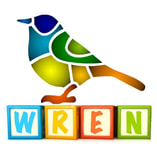
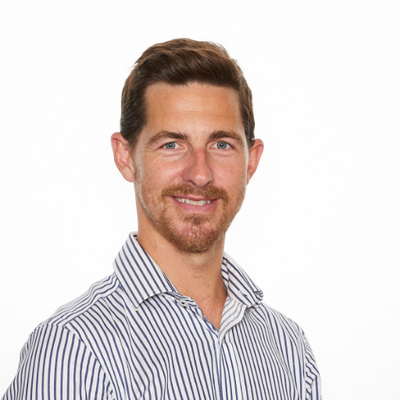
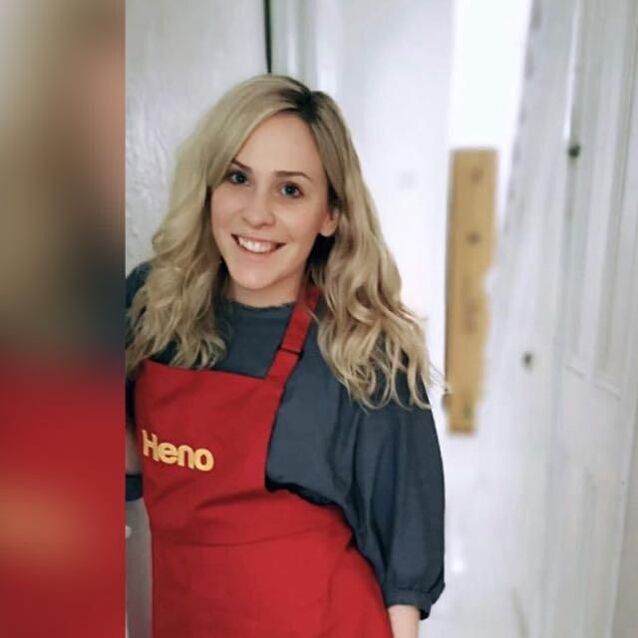
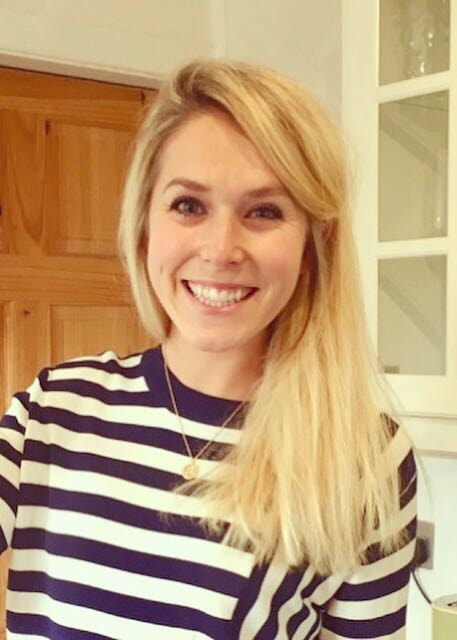
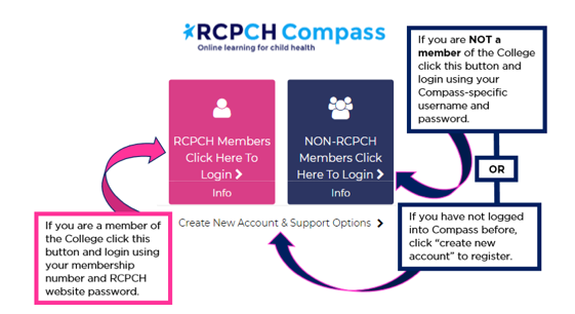
 RSS Feed
RSS Feed
